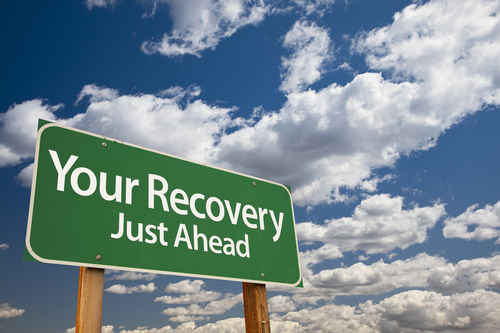CSMA Selma drug rehab centers offer a vast array of addiction treatment services in the Fresno County area. These treatment facilities provide customized treatment programs to deal with the special requirements of each individual struggling with substance abuse problems. With facilities and therapy programs comparable to those found in luxury rehab centers, our Selma drug rehab centers provide evidence-based therapy like behavioral therapy and medication-assisted treatment to ensure the best chances of recovery.
At CSMA, we believe that financial constraints should not prevent one’s journey towards sobriety. Hence, several payment accepted alternatives are offered to make treatment financially possible. Notably, for individuals with private health insurance, numerous treatment centers accept this mode of payment.
CSMA understands the value of making rehab financially possible. As a result, people with medical insurance can use their insurance for this life-altering journey. Getting rid of addiction doesn’t need to be a financial concern, and CSMA accepts most health insurance prepares as a payment alternative.
Getting help with addiction is a journey, but it’s a journey you do not have to take alone. If you or a loved one is looking for help for addiction, keep in mind that help is offered.


Addiction treatment is all about patient-centric care, administered by a team of certified professionals who understand that every person’s journey with addiction is different. It differs not just in regards to the degree of drug addiction but also their lifestyle, psychological make-up, and familial and social environments. A well-rounded treatment technique necessitates a deep understanding of these elements.
Therapy is an effective tool in addressing the psychological elements of addiction. At our Selma addiction centers, therapy is customized to an individual’s requirements and can consist of:
- Cognitive-behavioral therapy
- Individual therapy
- Family therapy
These healing interventions equip individuals with coping methods to prevent triggers and tools to keep sobriety in the long term.
Drug addiction can have an extensive effect on a person’s life but also their friends and family. Family therapy can be vital in the recovery process, assisting families comprehend addiction and the role they can play in their loved one’s recovery. Individual and group therapy sessions are integral to the addiction treatment program here.
Another important aspect of holistic treatment is physical wellness, which includes nutritional counseling and workout regimens. These physical components considerably affect a person’s total health and recovery procedure. Adjusting to a healthier way of life can considerably reduce drug cravings and minimize the threat of relapse.
Long-term recovery from drug addiction needs continuous support even after initial treatment. We value this and provide aftercare services and follow-up programs to make sure lasting sobriety. These comprehensive follow-up processes are important to prevent any possibility of relapse and to hold the individual liable for their recovery.
Drug addiction can feel frustrating, however it’s essential to bear in mind that recovery is possible. Selma Rehab Centers value the significance of this journey and deal detailed treatment services to make sure a go back to a healthy and productive life devoid of alcohol and drugs.


At CSMA, the addiction treatment methods deeply integrate physiological, psychological, and way of life elements, making sure individuals can get used to life after detox. The counselors and treatment professionals at CSMA work collaboratively with clients to create an impactful and effective treatment strategy post-detox. CSMA’s rehab centers have erudite addiction treatment professionals. Their wealth of experience and knowledge make navigating withdrawal and subsequent addiction treatment more manageable and effective. The addiction treatment professionals understand detox’s physical and emotional challenges and consequences.
They offer customized services to meet each individual’s specific requirements and situations. Our rehab centers are equipped with a range of therapy alternatives for addiction treatment. These consist of:
- Group therapy
- Individual counseling
- Cognitive-behavioral therapy
- Motivational interviewing
Integrating these treatments into a tailored addiction treatment strategy improves the possibility of a successful recovery after detox.
CSMA Rehab Centers are supportive, non-judgmental environments where those going through detox and looking for addiction treatment can feel safe and secure. They are sanctuaries where clients can embrace a substance-free lifestyle after detox. The addiction treatment services provided foster strength, mentor patients to handle daily stress factors without going back to substance usage after detox.
In conclusion, life after detox in Selma’s Rehab Centers is nothing to dread, thanks to the attentively designed addiction treatment techniques that cater to individual requirements.
Experienced professionals, holistic therapy alternatives, and thoughtful environments make the journey from detox to addiction treatment to recovery less challenging.
Among our rehabilitation centers’ essential differentiating functions is their holistic treatment approach. They do not simply rely on the detox process as the complete solution to addiction. Instead, they promote and implement a thorough recovery strategy, promoting physical, mental, and spiritual health as crucial elements of a person’s total wellness. This robust post-rehab life enhances the person’s resolve to prevent substance use, ensuring a successful social shift.
Our Selma, CA treatment facilities are staffed with a devoted team of professionals who bring a wealth of knowledge and hands-on experience. This know-how contributes profoundly towards creating personalized rehab and recovery strategies to address each resident’s unique needs and difficulties. These professionals provide constant care and assistance, guaranteeing residents navigate their rehab journey with very little hiccups. These teams of professionals have unquestionably added to numerous successful rehab cases in Selma’s rehab facilities, sealing the city’s reputation as a trustworthy place for detailed rehabilitation.
Whether it is drug abuse or other forms of addiction, repeated rehab efforts will be needed for some patients. CSMA assures those seeking help that their rehabilitation is our concern, no matter how challenging the journey may seem. This dedication to rehab and recovery can be seen in the enormous efforts to refine the rehabilitation methods, broadening the support group and mental health resources available to residents on their path to recovery.
The devotion to rehab and recovery in our Selma, CA rehab centers lines up with our overall vision of a healthy and productive community. Our efforts in healing and recovery stand apart in the area of mental health, in which personalized treatment programs are designed keeping individuals’ specific needs in mind.


Our method to addiction treatment in Selma, CA continues to develop, incorporating the latest research study and therapies to make sure a high success rate. This multi-pronged technique has actually led numerous individuals to maintain a drug-free life after treatment. Our intensive outpatient and inpatient programs focus on removing substance abuse and addressing the underlying problems that led to addiction in the first place.
The Selma addiction treatment programs include various methods such as detoxification, behavior modifications, counseling, alternative therapies, and continual support even after treatment. The journey to a drug-free adult life is certainly difficult, and with the constant support offered by our Selma rehab centers, the journey becomes achievable and sustainable.
While traversing the course of recovery, individuals get a brand-new point of view and outlook on life. They can restore their lives, re-establish healthy relationships, pursue their interest, and regain control of their life as soon as dominated by drugs.
Addressing drug addiction benefits the afflicted individuals and the society at large. It eliminates the social costs of drug addiction and contributes to a much healthier and more dynamic community.
Whether you or your enjoyed one is embarking on a drug-free life, this transition is a formidable process that needs support, understanding, and empowerment. This is specifically what CSMA rehab centers promise to offer to individuals dealing with substance abuse.
At CSMA, we constantly make every effort to provide the optimum level of client care and support, reflecting our core belief in the possibility of recovery and a drug-free life.
FAQs
